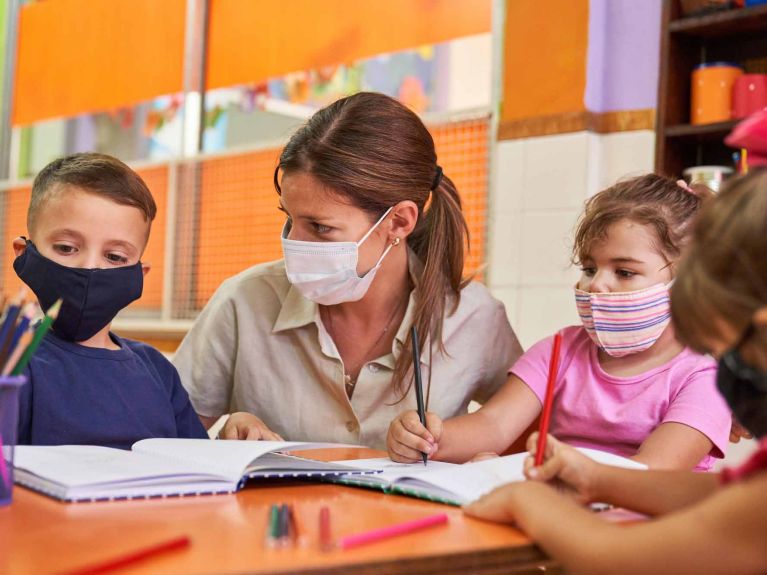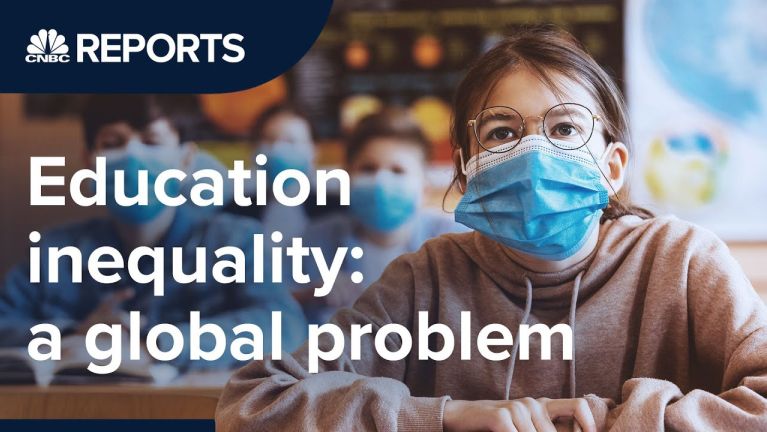Educational goal: equitable schooling
Germany wants to improve educational equity. We take a look at current challenges and positive developments.

Where does Germany stand with regard to educational equity?
International comparisons of educational equity show that Germany still needs to make improvements in this area. Although the German Economic Institute (IW) in Cologne noticed a positive trend in its 2011 and 2016 studies, in 2021 it found “that the link between socioeconomic background and educational success is growing stronger again. This can also be traced back to strong immigration.” The education system is confronted by the challenge of creating equal opportunity for individuals with different backgrounds. Referring to the coronavirus crisis, the IW study makes clear: “As a result of the closure of educational institutions for a longer period, how well children and young people continue to be supported depends largely on their home environment.” A country’s prosperity is not the sole factor here: UNICEF investigated the educational equity of preschool- and school-age children in 41 industrialised nations in 2018. Germany received a lower middle ranking, and although it was placed more highly than the USA and Australia, it was behind smaller economies, such as Lithuania, Denmark and the number one country Latvia.
Dieses YouTube-Video kann in einem neuen Tab abgespielt werden
YouTube öffnenThird party content
We use YouTube to embed content that may collect data about your activity. Please review the details and accept the service to see this content.
Open consent formWhat positive developments have there been?
Success in higher education is becoming less dependent on social background. The IW study draws attention to the proportion of young people from non-graduate households who have attained a university degree or are still in higher education. While the average for the years from 2000 to 2002 was 18.7%, in 2018 it had already risen to 30%. Furthermore, the National Education Report for 2020 shows that “upward mobility” (children’s education is higher than parents’ education) increased slightly while “downward mobility” (children’s education is lower than parents’ education) decreased. Fundamentally, upward mobility in Germany is significantly higher than downward mobility.
You would like to receive regular information about Germany? Subscribe here:



